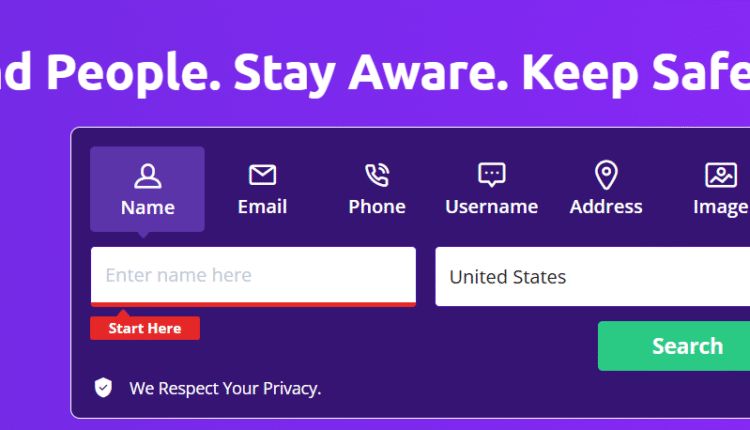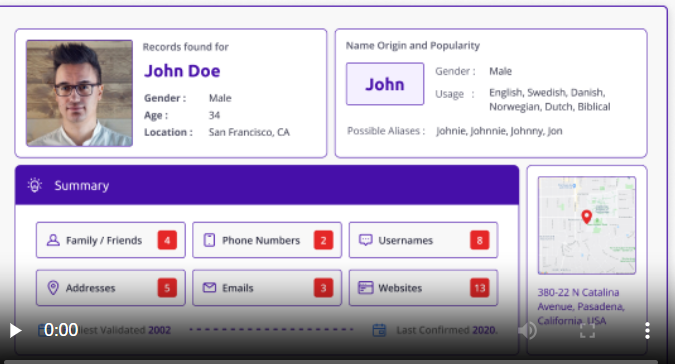Protecting Yourself Online: Essential Tips from Social-catfish for Verifying People and Preventing Scams
Introduction to the dangers of online fraud and scams
The internet has opened up a world of opportunities, but it also comes with its fair share of risks. Every day, countless individuals fall victim to online fraud and scams that can lead to financial loss and emotional distress. With the rise of social media and dating sites, verifying someone’s identity is more crucial than ever. It’s not just about protecting your wallet; it’s about safeguarding your peace of mind in an increasingly digital world. Luckily, resources like Social-catfish offer effective solutions for those looking to navigate the murky waters of online interactions safely. Let’s explore how you can better protect yourself while engaging with others online.
The internet has opened up a world of possibilities, but it also comes with its share of risks. Every day, countless individuals fall victim to online scams and fraud. From fake love interests to phishing emails, the dangers are all around us. These deceitful tactics can leave you feeling vulnerable and wary about who to trust.
As we navigate this digital landscape, it’s crucial to arm ourselves with knowledge on how to protect our personal information and verify the identities of those we interact with online. Social-catfish is here to guide you through essential tips that will help you stay safe while enjoying everything the internet has to offer. Let’s dive into how you can shield yourself from potential threats and ensure your online experiences remain positive and secure!
The importance of verifying people online
In today’s digital age, verifying people online has become more crucial than ever. With the rise of social media and dating platforms, connecting with new individuals is easier but riskier.
Scammers often create fake profiles to manipulate unsuspecting users. They exploit emotions and trust, leading to financial loss or personal harm. This makes it vital to take verification seriously.
Trusting someone based solely on their profile picture can be misleading. A simple search or background check can reveal inconsistencies in a person’s story or identity.
By taking the time to confirm identities, you protect yourself from potential scams. It empowers you to engage confidently and build genuine connections without falling victim to deceitful tactics.
Verifying people online is crucial in today’s digital landscape. The internet offers a wealth of opportunity, but it also opens the door to deception. Scammers are becoming increasingly sophisticated, using social media, dating sites, and even job platforms to exploit unsuspecting individuals.
When you meet someone online, it’s essential to approach with caution. Always take the time to verify their identity before sharing personal information or engaging in any financial transactions. A simple search can reveal red flags that might otherwise go unnoticed. Use resources like Social-catfish for background checks or reverse image searches to ensure that the person on the other end is who they claim to be.
Remember that not everyone has your best interests at heart. Taking steps to confirm someone’s identity can save you from emotional distress and potential financial loss. Trust your instincts; if something feels off, it probably is.
Online connections can lead to meaningful relationships and opportunities when built on trust. By prioritizing verification, you create a safer environment for yourself while navigating this vast digital world filled with both genuine individuals and opportunistic fraudsters.
Tips for verifying someone’s identity online
Verifying someone’s identity online can be straightforward if you know what to look for. Start by checking their social media profiles. Genuine accounts usually have consistent information and a history of interactions.
Next, conduct a reverse image search on their profile pictures. This tool helps identify if the images are stolen from someone else or used elsewhere.
Don’t hesitate to ask specific questions that only the real person would know. Their responses can reveal inconsistencies in their story.
Look for signs of professionalism, especially in communication. A scammer often uses poor grammar or generic messages that lack personal touch.
If you’re still uncertain, consider using verification services like Social-catfish, which specialize in uncovering hidden details about individuals online. Trust your instincts; if something feels off, it probably is. Stay cautious and informed as you navigate your online connections.
Red flags to look out for in online interactions
When interacting online, awareness is your best defense. Several red flags can signal potential scams or deceptive behavior.
Watch for vague profiles. If someone’s details seem sparse or inconsistent, proceed with caution. Genuine individuals often share more about themselves.
Another warning sign is urgent requests for money. Scammers create pressure to act quickly, claiming emergencies or unexpected situations. Take a breath and assess the situation calmly.
Be wary of overly flattering language. Excessive compliments might be a tactic to manipulate emotions and gain trust too quickly.
Also, look out for reluctance to video chat or meet in person after establishing contact over time. A genuine connection usually welcomes face-to-face interaction eventually.
If someone avoids answering personal questions directly or gives evasive responses, it’s wise to question their credibility and intentions before moving forward. Always trust your instincts; they’re there for a reason.
Real-life examples of successful verification and scam prevention using Social-catfish
A woman named Sarah met someone online who seemed perfect. They exchanged messages for weeks, and she felt a strong connection. Before taking the plunge, she decided to use Social-catfish to verify his identity. It turned out he was using fake photos and had a history of scams.
In another case, Mark received an email from what appeared to be his bank requesting personal information. Suspicious, he utilized Social-catfish’s tools to check the sender’s details. The investigation revealed it was a fraudulent domain designed to steal sensitive data.
These stories illustrate how proactive verification can save individuals from potential heartbreak or financial loss. With just a few clicks on Social-catfish, users gain access to essential tools that help confirm identities and protect against deceitful tactics often used by scammers in the digital space.
Real-life examples highlight the effectiveness of Social-catfish in combating online scams. Many users have shared their experiences of using the platform to verify potential romantic partners and business contacts, significantly reducing their risk.
Take Sarah, for instance. She met someone on a dating app who seemed perfect at first glance. However, something felt off about his photos and stories. With a quick search on Social-catfish, she discovered that not only were the images stolen from another profile, but he was also involved in multiple scam reports. Her timely verification saved her from emotional distress and financial loss.
Then there’s Mark, who was looking to invest in a new startup pitched by an enthusiastic entrepreneur online. After researching through Social-catfish’s tools, he found discrepancies between what the entrepreneur claimed and their actual background information. Armed with this knowledge, Mark avoided making an investment that could have cost him dearly.
These instances showcase how essential it is to take proactive steps when engaging with others online. By utilizing services like Social-catfish for verification purposes, individuals can protect themselves against deceitful tactics while fostering safer digital interactions across various platforms.
Conclusion: taking control of your online safety and security
Taking control of your online safety and security is essential in today’s digital landscape. The internet offers countless opportunities, but it also comes with risks that can impact your life significantly. By implementing the tips shared for verifying someone’s identity, you can protect yourself from scams and fraudulent interactions.
Stay vigilant by recognizing red flags during online exchanges. Trust your instincts; if something feels off, it’s worth investigating further. Utilize tools like Social-catfish to confirm identities before engaging deeply with someone new.
Remember that safeguarding yourself online isn’t just about avoiding scams—it’s about building trust in genuine relationships while navigating the complexities of the web safely. Empower yourself with knowledge and resources to ensure a secure digital experience. Your safety should always be a priority as you interact in this vast online world.

